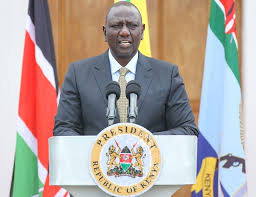The Northwest Peace and Security Summit that took place in Katsina on June 24 and 25, 2024 couldn’t have come at a better time. Held against the backdrop of the seemingly intractable terrorist attacks being orchestrated by rag-tag nomadic armed gangs in the region, it was meant to address the pertinent issues and find lasting solutions.
Banditry in the region started in Zamfara state about 14 years ago and spread to the other six states in the zone – Kaduna, Kano, Jigawa, Katsina, Sokoto, and Kebbi. From a small beginning, the fire grew into a conflagration, consuming everywhere and posing one of the worst internal security challenges in Africa. Thousands of people have been killed, maimed, kidnapped for ransom, displaced and or dispossessed. The people of this agrarian, albeit mineral-rich, zone, most of whom are farmers, have since lost the common features of their daily life; farmers cannot till their land, visits between villages or towns are suicidal as the marauding bandits lurk around, and night time is no longer for rest and relaxation because of fear of attacks by the armed gangs. Indeed, for the majority of the people, life has become Hobbesian: ‘solitary, poor, nasty, brutish, and short’.
All past efforts to contain the appalling insecurity in the seven states have failed woefully. They included meetings, initiatives, shelling of the bandits’ hideouts by the army, arrests, etc. The latest move, therefore, was a welcome development because it raised a new hope. With the theme, “Regional Cooperation for Securing Lives and Livelihoods,” the summit was organised by the Northwest Governors Forum and the United Nations Development Programme (UNDP) and hosted by the Katsina state government. It was attended by some of the governors, Vice-president Kashim Shettima, who represented President Bola Ahmed Tinubu, the Sultan of Sokoto, UNDP officials, security agencies, the embassies of Germany and Norway, and other key stakeholders.
The significance of the two-day event was not lost on anyone. In speech after speech, participants dwelt on the stated objective of the event: “explore solutions to ongoing insecurity, focusing on promoting peace and stability while strengthening cooperation among state governments to tackle these complex issues.” The truth regarding the situation was told in frank and meaningful discussions that left no one in doubt about the existential threat the Northwest, nay Nigeria, faces vis-à-vis the banditry and abduction that are ongoing in the region. The submissions were encouraging as the past mistakes were clearly acknowledged and fresh commitments were made by all the groups present.
We commend the organisers and especially acknowledge the support the UNDP gave to the creation of the Northwest Peace and Security Development Framework. The participation of the UN agency and some of the embassies of other countries is expected to provide a wider understanding and foster international cooperation. We are, however, dismayed that more than half of the state governors in the region (Kaduna, Kano, Jigawa, and Sokoto) were absent. It was not enough to send representatives like deputy governors or the Secretary to the State Government (SSG) as they did. Hiding behind some flimsy excuses, their yawning absence was all too noticeable to everyone at the event who saw it as a disappointing pointer to their sleight of hand approach to the most pressing need in their communities. Their presence would have symbolised their renewed commitment to the project.
Following the summit, which was the first of its kind, people of the Northwest zone in particular and Nigeria in general expect to witness a sea change in the approaches to solving the insecurity challenge. All the resolutions made at the landmark event should be executed to the letter in an organised manner, with a never seen before unity of purpose, by all the affected state governments, the security agencies and other key stakeholders.
A lot rests on the shoulders of the governors and the security agencies. The past practice of blaming each other should be eschewed. The security agencies, whom the governors have blamed in many instances for refusing to act in certain situations, should turn over a new leaf and prove their mettle. Other observers blame them for other things. They should renew their commitment with vigour and patriotism.
Blueprint wishes to point out that fighting insurgency requires a carrot and stick approach. As such, the people that are orchestrating all the atrocities, including the brigands and collaborators, must be involved in the search for solution. It is when they remain recalcitrant that they should feel the full weight of the law.
The states and the security agencies would count on donor agencies and governments of advanced countries to assist with technical know-how, especially in intelligence gathering. Consequently, only synergy and cooperation among stakeholders, as well as commitment and sense of purpose, would help eliminate all forms of terrorism in the Northwest and the rest of the country.




